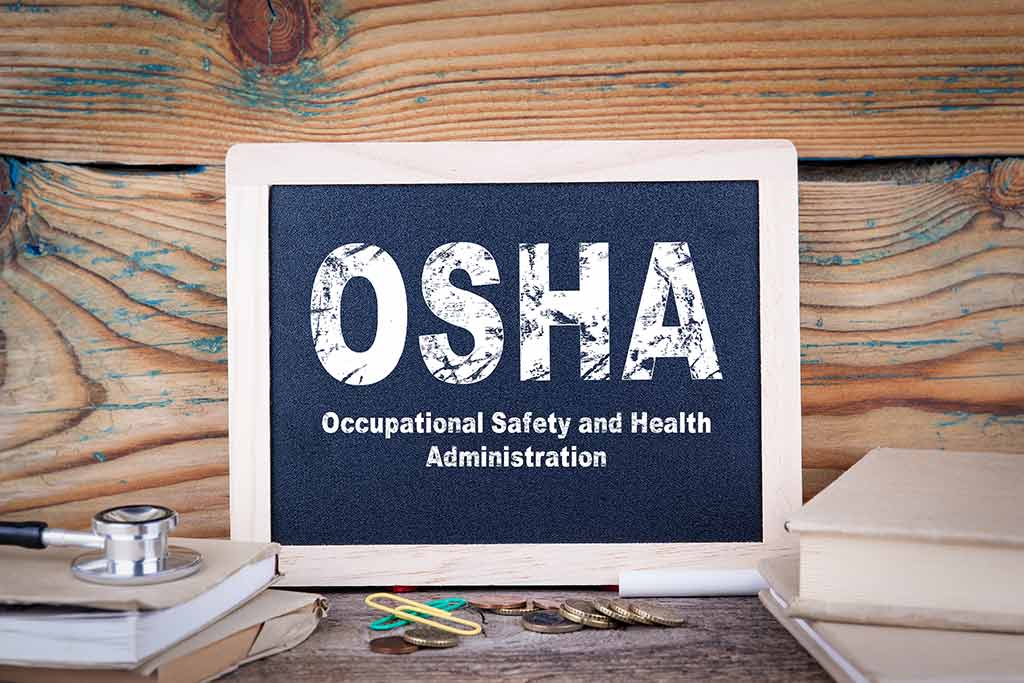Fork Truck Training and Certification
This on-site forklift certification course fully aligns with OSHA’s general industry and construction standards. In the two-hour course, participants will receive comprehensive training on all formal instruction topics necessary to earn a forklift license
Fork Truck Training and Certification
Forklifts, also known as powered industrial trucks, are essential in lifting and transporting cargo in construction and other industries. OSHA mandates that all operators must be certified through formal instruction, practical training, and performance evaluation.
This on-site forklift certification course fully aligns with OSHA’s general industry and construction standards. In the two-hour course, participants will receive comprehensive training on all formal instruction topics necessary to earn a forklift license and safely operate Class I — Class VII forklifts.
The training, aimed at workers seeking OSHA-accepted forklift driver certification, covers how to safely operate forklifts. Participants must be at least 18 years old to legally operate this machinery.
Our course certifies operators in:
- Class I: Electric motor rider trucks
- Class II: Electric motor narrow aisle trucks
- Class III: Electric motor hand trucks or hand/rider trucks
- Class IV: Internal combustion engine trucks (solid/cushion tires)
- Class V: Internal combustion engine trucks (pneumatic tires)
- Class VI: Electric and internal combustion engine tractors
- Class VII: Rough terrain forklift trucks
Suitable for workers in construction or general industry, the course does not apply to agriculture workers or operators of certain industrial trucks, farm vehicles, or earth-moving over-the-road haulers.
To earn an OSHA forklift certificate and certification card, participants must complete six lessons, pass lesson quizzes and a final exam. The quizzes and the final exam, which participants can attempt multiple times, cover all course topics.
After passing the final exam, participants must receive hands-on training and complete an operator performance evaluation in the workplace to earn their official forklift license. We provide a Forklift Operator Evaluation Form for employers to assess key operator tasks.
Skills evaluated include:
- Forklift inspections
- Picking up, transporting, and putting down a load
- Parking
- Fueling and battery recharging
Upon successful evaluation and completion of required paperwork by the employer, participants will receive their official forklift certification, valid for three years. Upon expiration, a refresher training and another employer performance evaluation are required.
Questions?
888-586-9495
Related Classes:
Confined Space Entrant & Attendant
MSHA Part 48B Annual Refresher Training
MSHA Part 48B New Miner Training
CCS Safety Training’s 30-Hour General Industry Course
OSHA Outreach 30-Hour Construction Course
OSHA Outreach 10-Hour Construction Course
Why On-site Training?
In the critical moment of accountability, when facing an OSHA inspector after an incident, how do you want to define your company’s commitment to safety? Would you prefer to admit to just meeting basic requirements through online videos, or proudly affirm that your company went above and beyond by investing in on-site, OSHA-certified trainers? Choose the path that not only enhances safety but also demonstrates your unwavering dedication to your employees’ well-being and compliance with the highest standards.
Hands-On Experience
On-site training allows for practical, hands-on learning experiences. This is particularly important for safety training, where physical demonstration and practice of safety procedures can be crucial.
Immediate Feedback and Interaction
Real instructors can provide immediate feedback and clarification. This interactive environment can enhance understanding and retention of safety protocols.
Customization to Specific Worksite Needs:
On-site trainers can tailor the training to the specific hazards and safety requirements of the workplace. This ensures that the training is directly relevant and applicable to the employees’ daily tasks.
Building a Safety Culture
Having an instructor physically present emphasizes the importance of safety in the workplace. It can help in fostering a culture of safety among the employees.
Enhanced Engagement
Physical presence of an instructor can lead to higher levels of engagement and participation. Employees are more likely to ask questions and interact in a live setting.
Observation of Workplace Practices
Instructors can observe the current practices and behaviors in the workplace, providing specific, contextual advice and adjustments to improve safety.
Team Building
On-site training can also serve as a team-building exercise, strengthening the teamwork skills necessary for effective safety practices.
Compliance with Specific OSHA Requirements
Certain OSHA training requirements may be more effectively met through on-site training, especially where practical demonstrations are required.
Reducing Miscommunication
Face-to-face training reduces the risk of miscommunication which can occur in online formats, ensuring clearer understanding of safety procedures.
Adaptability and Flexibility
On-site trainers can adapt their teaching style and content on the fly, based on the response and needs of the attendees.
Immediate Resolution of Queries
Any doubts or queries can be immediately addressed and resolved by the instructor, which is not always possible in online formats.
Networking and Sharing Experiences
Employees can share their experiences and learn from each other’s safety practices and incidents, fostering a collaborative learning environment.
Ensuring Engagement and Attendance
Physical presence in a training session ensures that employees are actually participating and attentive, as opposed to online training where engagement can be harder to monitor.
Motivation and Morale:
The investment in on-site training can boost employee morale, showing that the company values their safety and well-being.
Addressing Language and Literacy Barriers
On-site training can be more effectively modified to address language and literacy barriers among workers, ensuring that all employees receive the training they need.













